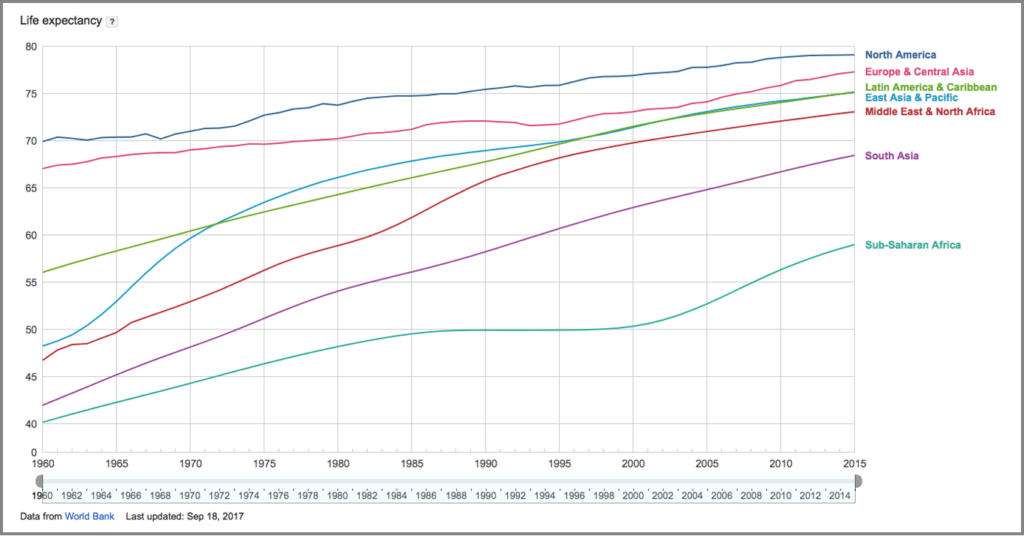If you have ever asked yourself, what age will I die, then you will probably be interested in this study. According to a study done by researchers Bryan G. Hughes and Siegfried Hekimi of McGill University, there’s no evidence that life expectancy will stop increasing.
The 2016 research used data from 41 different countries to determine that life expectancy increased significantly over the last 100 years. The increase is mainly due to significant advances in maternity care, antibiotics, vaccines, and better healthcare on a global scale.
By analyzing the lifespan of the longest-living individuals from the USA, the UK, France and Japan for each year since 1968, Hekimi and Hughes found no evidence for such a limit, and if such a maximum exists, it has yet to be reached or identified, Hekimi says.

Far into the foreseeable future
“We just don’t know what the age limit might be. In fact, by extending trend lines, we can show that maximum and average lifespans, could continue to increase far into the foreseeable future,” Hekimi says. Many people are aware of what has happened with average lifespans. In 1920, for example, the average newborn Canadian could expect to live 60 years; a Canadian born in 1980 could expect 76 years, and today, life expectancy has jumped to 82 years. Maximum lifespan seems to follow the same trend.
It’s impossible to predict what future lifespans in humans might look like, Hekimi says. Some scientists argue that technology, medical interventions, and improvements in living conditions could all push back the upper limit.
“It’s hard to guess,” Hekimi adds. “Three hundred years ago, many people lived only short lives. If we would have told them that one day most humans might live up to 100, they would have said we were crazy.”